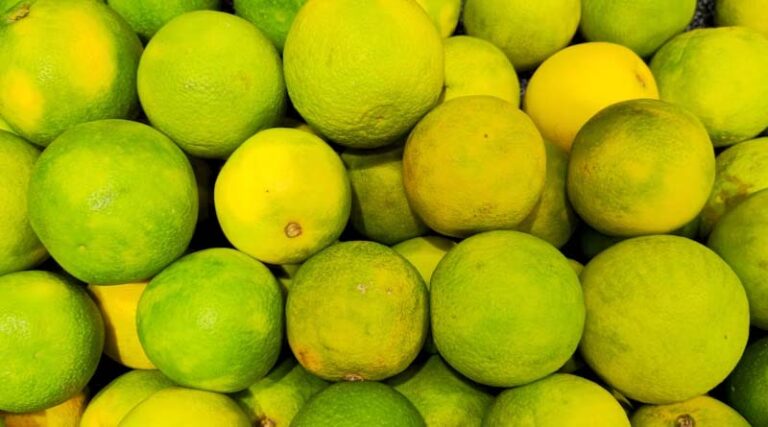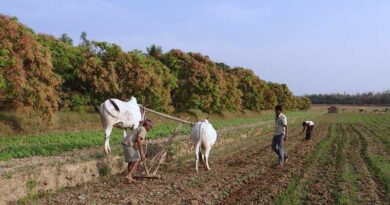
Maharashtra’s Sweet Lime Farmers Hit by 48°C Heat, Drought, and Unpaid Insurance Claims
10 November 2025, New Delhi: Sweet lime farmers across Maharashtra’s Vidarbha region are facing repeated crop losses due to erratic weather and long delays in insurance claim settlements. Growers in the citrus-dominant areas of Nagpur district have expressed concerns over the Restructured Weather-Based Crop Insurance Scheme (RWBCIS), saying claims are often rejected or delayed without clear explanation.
The RWBCIS, launched in 2016 and extended till 2025–26 with an outlay of about ₹71,810 crore (US$8.35 billion), aims to safeguard farmers from weather-induced losses. However, growers say that payouts are often neither transparent nor timely.
A farmer from Narasingi village shared that he paid nearly ₹5,160 (US$60) in 2023 to insure his 50-tonne sweet lime crop. After hailstorms hit the region and yields dropped drastically, his claim was rejected. “We never receive any message or reason for rejection. It’s like the claim just disappears,” he said.
Many farmers in Vidarbha have shifted from oranges to sweet lime over the past few years, mainly due to erratic rainfall and rising temperatures. Sweet lime requires 40–50% less water than oranges and is better suited to semi-arid conditions. Maharashtra, India’s second-largest producer after Andhra Pradesh, produced about 9.44 lakh tonnes (944,000 tonnes) across 77,700 hectares during 2023–24.
Despite this, climate challenges persist. Frequent heatwaves, droughts, and irregular monsoons continue to threaten citrus crops. During the 2019 drought, around 60% of Vidarbha’s orange orchards were destroyed, leading to an estimated loss of ₹1,668 crore (US$194 million). The region now faces temperatures up to 48°C and receives only about 705 millimetres of annual rainfall, well below the national average.
An agricultural scientist from the Government Agriculture College, Chaurai, noted that changing weather has disrupted flowering cycles and increased pest attacks. “Earlier, citrus trees flowered regularly every season. Now, even with good irrigation, one season produces while the next completely fails,” he explained.
The number of farmers opting for the RWBCIS has declined sharply. In 2018, over 1.15 lakh farmers insured crops worth nearly ₹1.25 lakh crore (US$14.5 billion). By 2024, only 48,519 farmers remained enrolled. In Nagpur district, participation dropped from 2,387 to just 753, and reportedly no claims were paid in 2024.
Farmers are demanding faster and more transparent claim processing. “When crops fail, farmers need money immediately to prepare for the next season. If a 2022 claim is paid in 2025, it loses all meaning,” said another grower.
With increasing heat stress, drought conditions, and limited insurance coverage, Vidarbha’s citrus farmers are under mounting pressure — raising serious questions about the long-term viability of sweet lime cultivation in the region.
Also Read: TERI Leads National Dialogue on Strengthening India’s Renewable Energy and Storage Ecosystem
📢 If You’re in Agriculture, Make Sure the Right People Hear Your Story.
From product launches to strategic announcements, Global Agriculture offers unmatched visibility across international agri-business markets. Connect with us at pr@global-agriculture.com to explore editorial and advertising opportunities that reach the right audience, worldwide.






